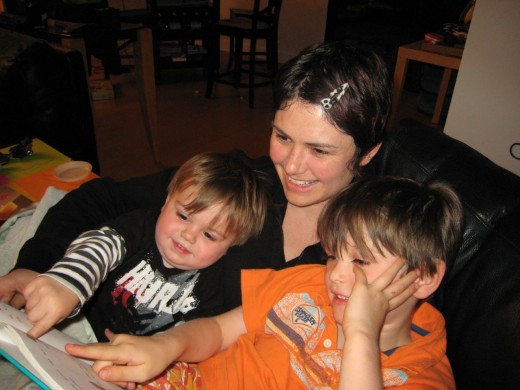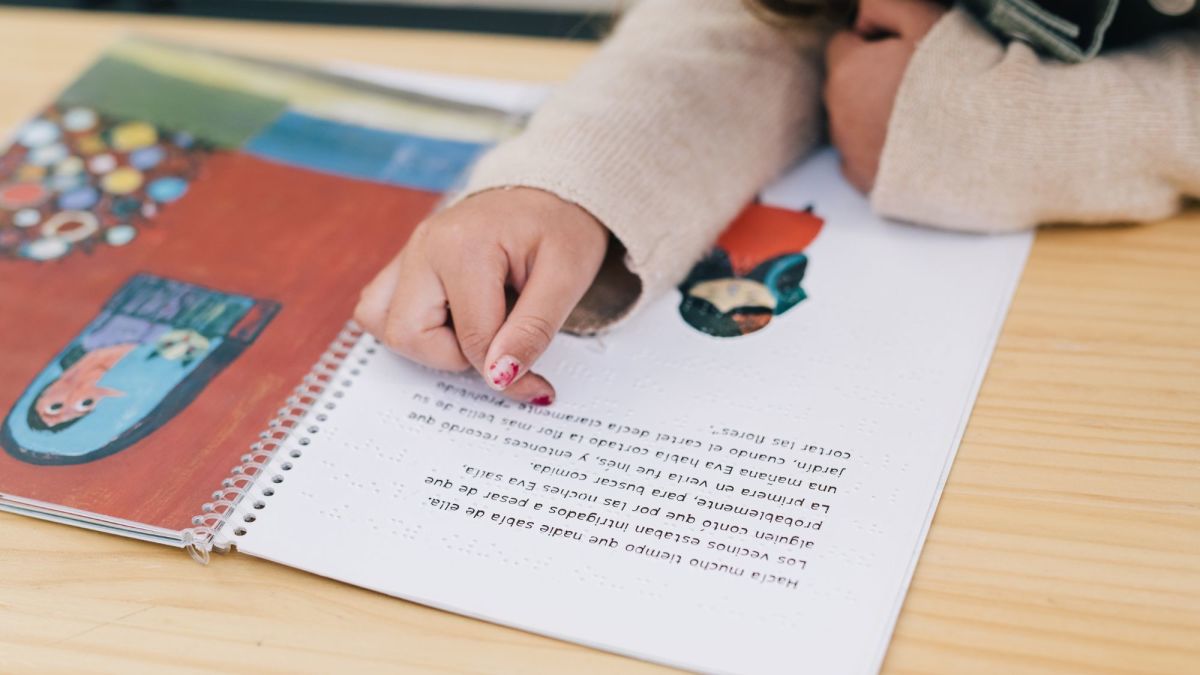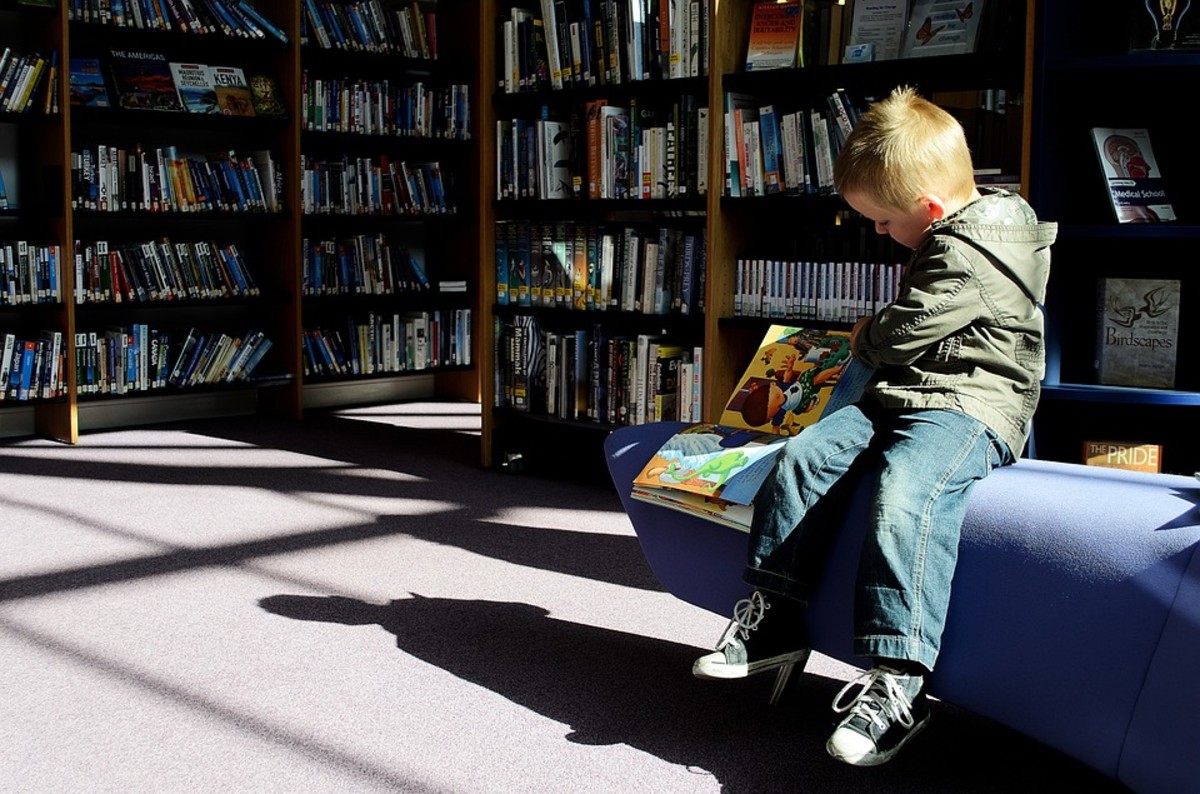How to Teach Your Child to Read

How often do you feel a parent should read with his or her child?
1. Read to your child
Reading with your children has been proven time and time again to increase reading enjoyment and understanding. By toddler age, reading nightly can become both a bonding and learning experience. Classics such as Dr. Seuss are great for the very young. Later (by 1st grade) reading chapter books will allow children to enjoy books they are not quite ready to read on their own. This really gets beginning readers excited about learning to read!
More on the importance of talking to children
- Teaching Interaction and Communication Skills: Cult...
More and more it seems that conversation is becoming a lost art in our society. In a digital age where many parents find even their youngest children distracted by all forms of technology, conversations are limited. Yet, for young children, having co
2. Talk to your child
Before children learn to read, they learn to talk. Listening for understanding and speaking are pre-reading skills. Even as children begin to read, conversing is vital to gaining new vocabulary and increasing comprehension.
3. Storytelling
Storytelling, as opposed to reading aloud, engages young children and inspires creativity. Try telling a story to your child and allowing them to tell you one. Many children begin to want their stories written and illustrated for a later date. This is a natural connection their own reading development. They will pick these homemade books up and feel like a reader since they know the story. This will allow a child to begin memorizing words, understanding sounds and developing story structure.
4. Engage and nurture your child’s interests
What does your child like? What makes them curious? Answering these questions are important components to reading. As you find their interests, you will begin to find books and even trips (museums and nature walks perhaps) that will intrigue and excite your child. The more they want to know and discover, the more self-motivated they will become about learning.
Online games are another resource available....for free!
- Educational Websites for Children
There is no denying that we live in a digital age. Children, as early as 4 years old enjoy playing games on computers. Though it is very important that all children have as many constructive, hand-on experiences as possible, the internet can be a...
5. Play language games
Kids love games. They are fun simple and many are free. Try these with your child:
· Rhyme time: Practice rhyming by coming up with a word to go back and forth naming rhyming words with.
· Find the word: Next time you’re in the car, challenge your child to find a special word. Love, like, me, she, it or longer words such as animal can be great words to look for while you get where going. How many can your child find on the way home?
· Alphabet game: How many words can your child think of that starts with F? (or any other letter, of course)
· Letter switch: What word would I have if I changed the first letter in cat to an f? This can be played with many different words. As your child masters first letter switches, try last letters and later, vowel swaps.
Highly recommended games (I use these in the classroom):
6. Visit local libraries
Visiting your local libraries can be fun and if made a routine, exposes your child to new books. The quiet time of a library also gives your child time to sit with a book, exploring pictures and words. Try visiting for library events such as guest storytellers.
7. Find the right school for your child
Each child is unique and finding the right school is about matching your child to the right environment. Whether looking at public, private or charter schools, it is a good idea to visit the school and get a feel for how the day goes. Could you see your child here? Would they connect to peers? Teachers? Are their special activities that connect to your child’s interest?
8. Make school to home connections
Once your child begins school, is it important that you connect their home life to their school life beyond just homework. Find out about what they are learning and extend it at home with books, movies and trips. This sends the message that school and learning is important and also extends your child’s understanding. Also, find out what prompts your child’s teachers use for reading beyond “sound it out.” Most children are being taught many other valuable strategies such as “look at the pictures” or “what would make sense” (context clues). Using the same wording as their teachers will allow for consistency and understanding.
9. DON’T panic
Each child learns to read at his or her own pace. Do not worry if your child is not moving at the rate of what you think he or she should or even at the rate of other children. Most children are on the same reading level by 3rd grade no matter when they started reading prior to then. If your child is progressing at a rate his or her teacher is concerned about, be receptive to whatever interventions they suggest. Never push your child into reading or this may cause a phobia or just plan dislike for reading. Letting your child know that you are proud of whatever progress he or she is making is far more effective.
10. Be an example to your child
If your child never sees you reading, why would he or she think it is important or even enjoyable? Try having a reading time where you pick up something, anything, to read for 10 minutes every day. Newspapers, magazines and books all are great. Seeing you read speaks volumes to your child.









